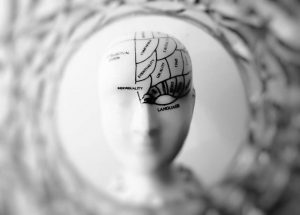By Jim|2025-12-01T11:42:33-05:00December 24th, 2025|News Posts|Comments Off on Dementia Types: MedBridge
Guest Blog: Cognitive Issues in Seniors: Everything You Need To Know
In essence, mild cognitive impairment (MCI) is a condition in which an individual experiences a slight decline in mental abilities. While minor, the decline can be easily noticed by the person concerned or the people they interact with. The changes, however, are not severe enough to interfere with their routine activities and daily life.
Decline Due to Normal Aging vs. Mild Cognitive Impairment: What the Difference?
Gradual cognitive decline is sometimes evident with healthy aging. For instance, the mental processing slows down, the ability to learn new information is reduced, and the likelihood of getting distracted increases.
However, decline brought about by normal aging will not affect overall functioning or the ability to perform routine activities. Normal aging will also not affect intelligence, recognition, or long-term memory.
In normal aging, older people may forget names (and words) and misplace things occasionally. However, with mild cognitive impairment, the person forgets information and conversations one would usually remember, such as planned events and other appointments.
Does MCI Always Lead to Dementia?
Dementia is the general term used to describe the severe decline in mental function that interferes with daily living. There are instances, where a treatable disease or illness causes MCI.
However, researchers also discovered that for most patients with MCI, it is considered the point along the pathway to dementia. MCI can be secondary to various illnesses, including Parkinson’s and Alzheimer’s disease, vascular dementia, and frontotemporal dementia.
Is MCI Common?
According to the American Academy of Neurology, MCI is present in about 8 percent of people aged 65 to 69, in 15 percent of people aged 75 to 79, in 25 percent of those aged 80 to 84, and in about 37 percent of people aged 85 years or older.
Conclusion
If you suspect you have MCI, it is recommended that you see your doctor right away. While there is no specific test that can confirm a diagnosis, your doctor can tell if you have MCI based on the symptoms that manifest and the information you will provide.
About the Author
Melissa Andrews is the Content Marketing Strategist for Paradise Living Centers, an assisted living center for seniors with locations in Paradise Valley and Phoenix, Arizona. In her spare time, she enjoys cooking and going on hiking trips with her siblings and cousins.
Guest Blog: Tips on Caring for Loved Ones with Dementia
Dementia is a chronic or progressive syndrome that affects a person’s thinking, memory, comprehension, orientation, language, learning capacity, judgment, and calculation. People with dementia slowly lose their cognitive abilities, which leads to a decline in their social behavior and emotional control. Dementia develops when the brain is injured or damaged, such as what happens to individuals with Alzheimer’s disease.
According to the Alzheimer’s Association, over five million Americans are currently dealing with Alzheimer’s dementia. An estimated 80% are seniors aged 75 and up. If proper care, attention, and medication are not prioritized, the total can balloon to 13 million by 2050. Medical and health facilities are doing every means possible to address the situation.
If your senior family member has dementia and living at home or is under assisted living care, your best contribution is to care for your loved one properly. Here are tips to help you out.
Ask simple questions.
Someone with dementia will find open-ended questions confusing and intimidating. Instead of asking “what” questions, try to rephrase them to “yes-no” questions. For example, instead of asking, “What time would you like to take a bath today?” try asking, “Would you like to take a bath at 4 pm?”
Keep your words simple and clear.
Allow your loved one to help with daily tasks.
When dementia progresses, your loved one may find it difficult to remember and focus on tasks. You can help him or her maintain daily activities and skills and stay active. Allow him or her to assist you with simple activities such as setting the table, making the bed, and gardening. Help your loved one remember tasks and things by placing memory aids, such as signs and labels, all over the house.
Take your loved one to lunch.
Keeping senior loved ones with dementia socially active is essential. Have lunch together at his or her favorite restaurant. Go to a place where he or she used to frequent when communication wasn’t yet a problem. Make your loved one feel special and important.
Hold and touch your loved one.
Your touch is very powerful and reassuring. Hold your loved one’s hand or stroke his or her face now and then. Let him or her feel your love and support.
Most important of all, ask for help. Talk to a caregiver or get in touch with an assisted living care facility.
About the Author
Melissa Andrews is the Content Marketing Strategist for Paradise Living Centers, an assisted living center for seniors with locations in Paradise Valley and Phoenix, Arizona. In her spare time, she enjoys cooking and going on hiking trips with her siblings and cousins.




